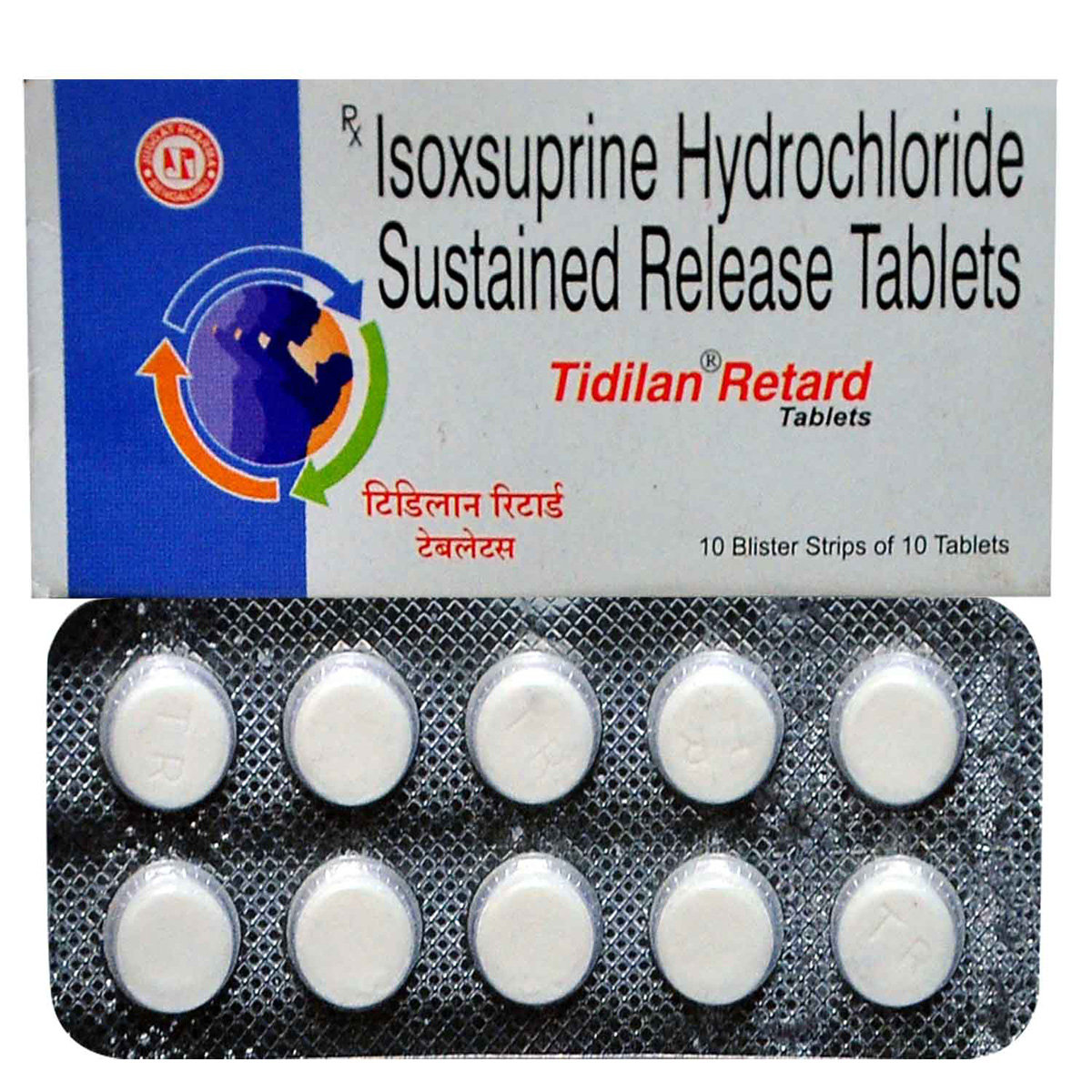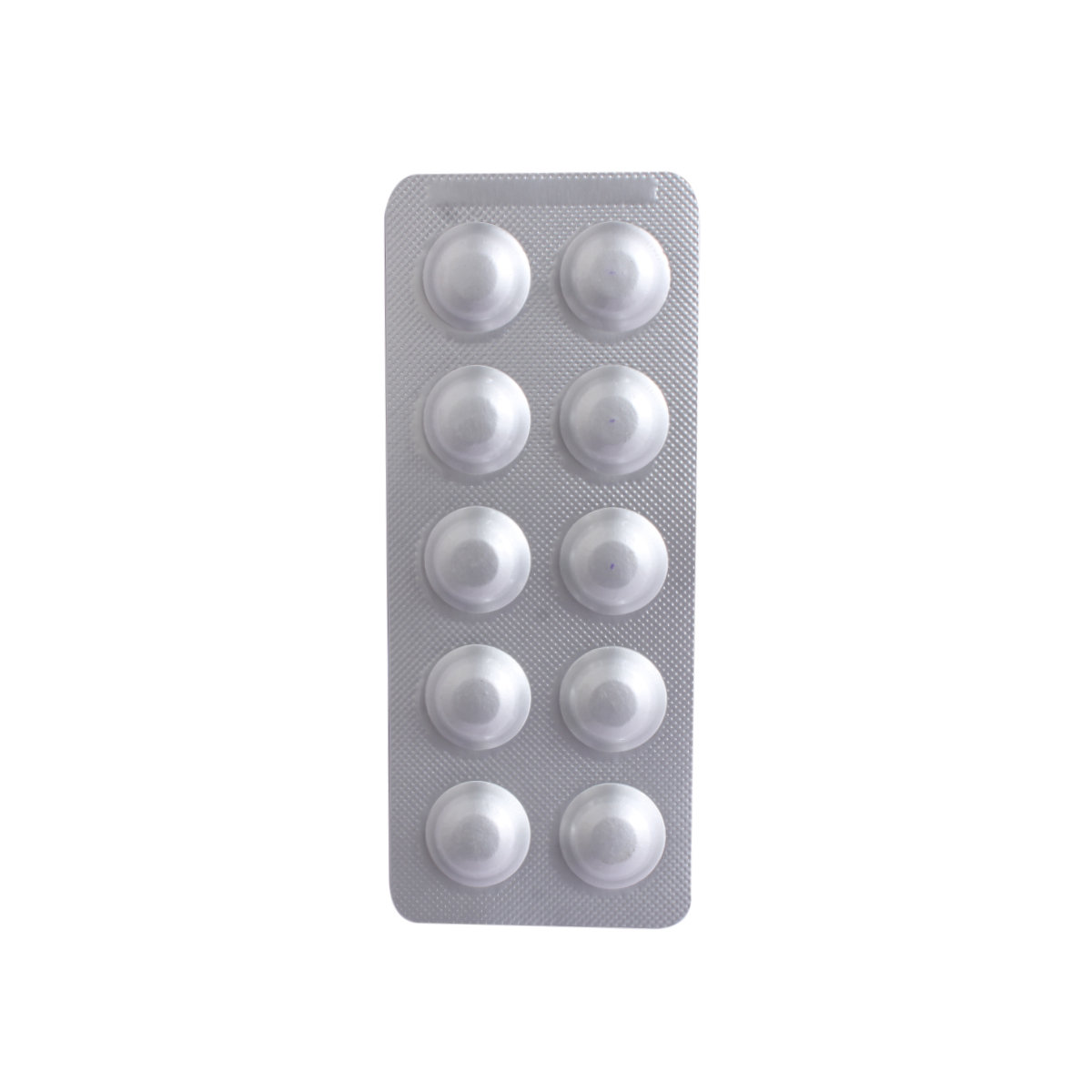Betalyte
MRP ₹110
(Inclusive of all Taxes)
₹16.5 Cashback (15%)
Provide Delivery Location
Online payment accepted
 Prescription drug
Prescription drugWhats That
About Betalyte
Betalyte belongs to a class of medication called 'vasodilator' (blood vessel relaxing agent) used to treat and prevent Raynaud's phenomenon, cerebral vascular insufficiency (poor blood flow to the brain), arteriosclerosis (hardening of the arteries), and other conditions involving poor blood flow in the blood vessel (veins and arteries). Besides this, it is also used to relax uterine muscles to prevent premature labour (when the uterus starts contracting for birth earlier than usual).
Betalyte contains Isoxsuprine, which relaxes and widens the blood vessels (artery/veins) and muscles (like uterine muscle), thereby increasing the blood flow to the muscles and blocking nerves, delaying contraction in premature labour pains, and poor blood flow to organs and other body parts.
Betalyte should be taken regularly in dose and duration as advised by the doctor. It would be best to take it at a fixed time every day. Your doctor will advise you on the exact dosage and how often you have to take Betalyte based on your medical condition. In some cases, you may experience chest pain (angina), irregular heartbeat, nausea, vomiting, and weakness. Most of these side effects of Betalyte do not require medical attention and gradually resolve over time. However, if the side effects are persistent, reach out to your doctor.
Betalyte should not be stopped abruptly without consulting the doctor as it may lead to unpleasant side effects. Also, it is not suitable for some people. Inform your doctor before starting Betalyte if you have any bleeding disorder or heart problem. Do not do strenuous activities to avoid premature labour. Betalyte may cause sudden falls in blood pressure, so if you are driving or operating a motor vehicle or doing any hazardous task, avoid it. Do not stand sudden from a lying position as you may feel dizzy. Alcohol intake with Betalyte can also cause dizziness, so one should avoid its intake.
Uses of Betalyte
Directions for Use
Key Benefits
Betalyte contains Isoxsuprine, which is a vasodilator. It relaxes and widens the blood vessels (artery/veins) and muscles (like uterine muscle), thereby relaxing them and increasing blood circulation to these parts. It is recommended to avoid strenuous exercise and work for the best results of Betalyte. So, it is prescribed for the treatment of cerebrovascular insufficiency (poor blood flow to the brain), peripheral vascular disease (blocked veins of the leg), Buerger's disease (blood clot in arm and legs) and Raynaud's disease (numb and cold sensation due to blocked nerves of hand). It helps in the prevention of preterm labour in pregnant women.
Storage
Drug Warnings
Betalyte should not be given to people allergic to Betalyte, have low blood pressure (less than 90 mm of Hg), or have a heart or bleeding problem. Tell your doctor you are using the Betalyte before undergoing dental or other surgery. Your doctor might stop this medicine before the surgery. Betalyte should not be stopped abruptly without consulting the doctor as it may lead to unpleasant side-effects. Also, lifestyle changes should be continued with Betalyte for best results and a speedy recovery. Betalyte may cause dizziness, so if you are sitting, rise slowly to avoid falling and not driving or operating a car. Also, any strenuous exercise or work should be avoided to avoid delivery complications.
Diet & Lifestyle Advise
- Keep your weight under control with a body mass index (BMI) of 19.5-24.9.
- Opt for a diet rich in whole grains, fruits, veggies, and low-fat dairy products.
- Limit sodium chloride (table salt) intake in your daily diet to 2300 mg per day or less than 1500 mg is ideal for most adults.
- If you are taking alcohol, then only one serving for women and two servings is advisable.
- Quitting smoking is the best strategy to lower the risk of heart disease.
- Avoid chronic stress as it can raise your blood pressure. Try to enjoy and spent time with your loved ones to cope with stress and practice mindfulness techniques.
- Monitor your blood pressure daily and if there is too much fluctuation, then immediately contact your doctor.
- Try to include heart-healthy omega-3 fatty acid-containing food drinks in your daily diet. You can also use low-fat cooking oil like olive oil, soybean oil, canola oil, and coconut oil to lower your elevated blood pressure.
Side Effects of Betalyte
- Weakness
- Dizziness
- Flushing (feeling of warmth)
- Upset stomach
- Vomiting
- Stomach pain
Habit Forming
Therapeutic Class
All Substitutes & Brand Comparisons
RX
Out of StockDulovas-40 Tablet 10's
Invision Medi Sciences Pvt Ltd
₹57.5
(₹5.18 per unit)
47% CHEAPERRX
Out of StockDuadilor 40mg Tablet SR
₹69.9
(₹6.29 per unit)
36% CHEAPERRX
Out of StockElprox 40mg Tablet SR
Captab Biotec
₹75
(₹6.75 per unit)
31% CHEAPER
FAQs
Drug-Drug Interactions Checker List
- KETOCONAZOLE
- ERYTHROMYCIN
- LEVODOPA
- ROPINIROLE
- PHENOBARBITAL
- LITHIUM
- FLUOXETINE
- VALPROATE
- PRAMIPEXOLE
- BUSPIRONE
- DIHYDROERGOTAMINE
- SIMVASTATIN
- ATORVASTATIN
Special Advise
- Use caution while driving a motor vehicle, operating machinery, or performing other hazardous activities as, Betalyte may cause dizziness, so if you experience dizziness or drowsiness, avoid these activities. Try to rise slowly from a sitting or lying position to avoid falling.
- Notify your doctor if you experience skin rash or palpitations (irregular heartbeats) after using Betalyte.
- Do not use Betalyte immediately after bleeding from childbirth (postpartum) and artery (blood vessel).
Disease/Condition Glossary
Premature labour: Also known as preterm labour, occurs when regular contractions and relaxations of the uterus result in the opening of your cervix after week 20 and before week 37 of pregnancy. It can lead to premature birth and other greater risk to the baby.
Cerebrovascular insufficiency: It occurs when there is obstruction of one or more blood vessels (arteries) that supply blood to the brain. This obstruction leads to strokes or transient ischemic attacks (TIAs or 'mini-strokes').
Buerger's disease: Buerger's disease occurs commonly in the arms and legs where blood vessels get swollen, thereby preventing blood flow, causing clots to form. This leads to pain, tissue damage, and the formation of gangrene (death of body tissues).
Raynaud's phenomenon: Raynaud's phenomenon occurs due to blocked nerves resulting in discolouration of the fingers and/or the toes after exposure to extreme cold or hot temperatures conditions. Skin discolouration shows a diminished blood supply to the local tissues.

Have a query?
Alcohol
Safe if prescribed
No interaction found; in case of any discomfort, consult your doctor.
Pregnancy
Consult your doctor
Betalyte is a category C pregnancy; studies suggest it is safe and does not harm the baby. Your doctor will still weigh the benefits and any potential risks before prescribing it to you.
Breast Feeding
Consult your doctor
Betalyte is a category C pregnancy; studies suggest it safe and does not pass through the milk. Your doctor will still weigh the benefits and any potential risks before prescribing it to you.
Driving
Safe if prescribed
Drive with caution, Betalyte may cause blurry vision, and dizziness may occur.
Liver
Consult your doctor
There is limited information available on the use of Betalyte in patients with liver disease. Please consult your doctor for the best advice.
Kidney
Consult your doctor
There is limited information available on the use of Betalyte in patients with kidney disease. Please consult your doctor for the best advice.
Children
Safe if prescribed
Betalyte is not recommended for children as the safety and effectiveness of Betalyte have not been established in children due to limited testing of this drug on children by competent authorities worldwide. If necessary, your doctor will decide whether to give Betalyte or not.










